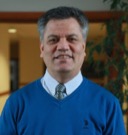Particle-Resolved Simulations of Complex Multi-Phase Flows
Speaker: Prof. Metin Muradoglu
Date: Aug 22, 2017; Time: 2:00pm Location: UTEB 476
 Abstract: Multiphase flows are ubiquitous in a wide range of natural processes and engineering applications. Although efforts to compute multiphase flows started as early as the beginning of the computational fluid dynamics (CFD), the progress was rather slow mainly due to the existence of interfaces that continuously evolve in time and often undergo large deformations leading to topological changes such as breakup and coalescence. In the case of confinement, the fluid-fluid interface strongly interacts with the complex channel wall and usually involve small features such as thin liquid films that are difficult to resolve computationally. Multi-physics effects such as soluble surfactant, phase change, chemical reactions, moving contact line and viscoelasticity make the problem even more complicated and challenging for computational simulations. In this talk, I will discuss our work towards addressing these challenges. I will first describe a front-tracking method developed for particle-resolved simulations of multiphase flows, where all relevant continuum length and time scales are fully resolved in all phases. Special emphasis will be placed on treatment of soluble surfactants, viscoelasticity and phase change (droplet evaporation and burning). Sample results will be presented for various multiphase flows encountered or inspired by bio/microfluidic applications. The microfluidic applications generally involve highly laminar low Reynolds number flows but the numerical method is not restricted to low Reynolds numbers and can be directly applied to turbulent multiphase flows at moderate and even high Reynolds numbers depending on available computational resources. Sample results will also be presented about effects of soluble surfactant on weakly turbulent bubbly flows at moderate Reynolds numbers. The talk will conclude with future directions and applications of presented method to large multi-scale and multi-physics problems of practical interest.
Abstract: Multiphase flows are ubiquitous in a wide range of natural processes and engineering applications. Although efforts to compute multiphase flows started as early as the beginning of the computational fluid dynamics (CFD), the progress was rather slow mainly due to the existence of interfaces that continuously evolve in time and often undergo large deformations leading to topological changes such as breakup and coalescence. In the case of confinement, the fluid-fluid interface strongly interacts with the complex channel wall and usually involve small features such as thin liquid films that are difficult to resolve computationally. Multi-physics effects such as soluble surfactant, phase change, chemical reactions, moving contact line and viscoelasticity make the problem even more complicated and challenging for computational simulations. In this talk, I will discuss our work towards addressing these challenges. I will first describe a front-tracking method developed for particle-resolved simulations of multiphase flows, where all relevant continuum length and time scales are fully resolved in all phases. Special emphasis will be placed on treatment of soluble surfactants, viscoelasticity and phase change (droplet evaporation and burning). Sample results will be presented for various multiphase flows encountered or inspired by bio/microfluidic applications. The microfluidic applications generally involve highly laminar low Reynolds number flows but the numerical method is not restricted to low Reynolds numbers and can be directly applied to turbulent multiphase flows at moderate and even high Reynolds numbers depending on available computational resources. Sample results will also be presented about effects of soluble surfactant on weakly turbulent bubbly flows at moderate Reynolds numbers. The talk will conclude with future directions and applications of presented method to large multi-scale and multi-physics problems of practical interest.
Biography: Dr. Muradoglu is a professor of Mechanical Engineering at Koc University. He received his BS degree in Aeronautical Engineering from Istanbul Technical University (ITU) in 1992, and MS and PhD degrees both from Cornell University in 1997 and 2000, respectively. He also worked as a postdoc at Cornell for about 18 months before joining the Koc University faculty in 2001 as an assistant professor where he became an associate professor in 2007 and a full professor in 2016. He has had visiting positions at Harvard, Notre Dame and Princeton Universities, and is currently visiting the University of Michigan, Ann Arbor. Dr. Muradoglu’s work has been recognized by multiple awards including the Turkish Academy of Sciences outstanding young scientist award (TUBA-GEBIP) (2009), Middle East Technical University encouragement award (2009) and the Scientific and Technological Research Council of Turkey (TUBITAK) encouragement award (2010). He has been an associate member of Turkish Academy of Sciences since 2012.